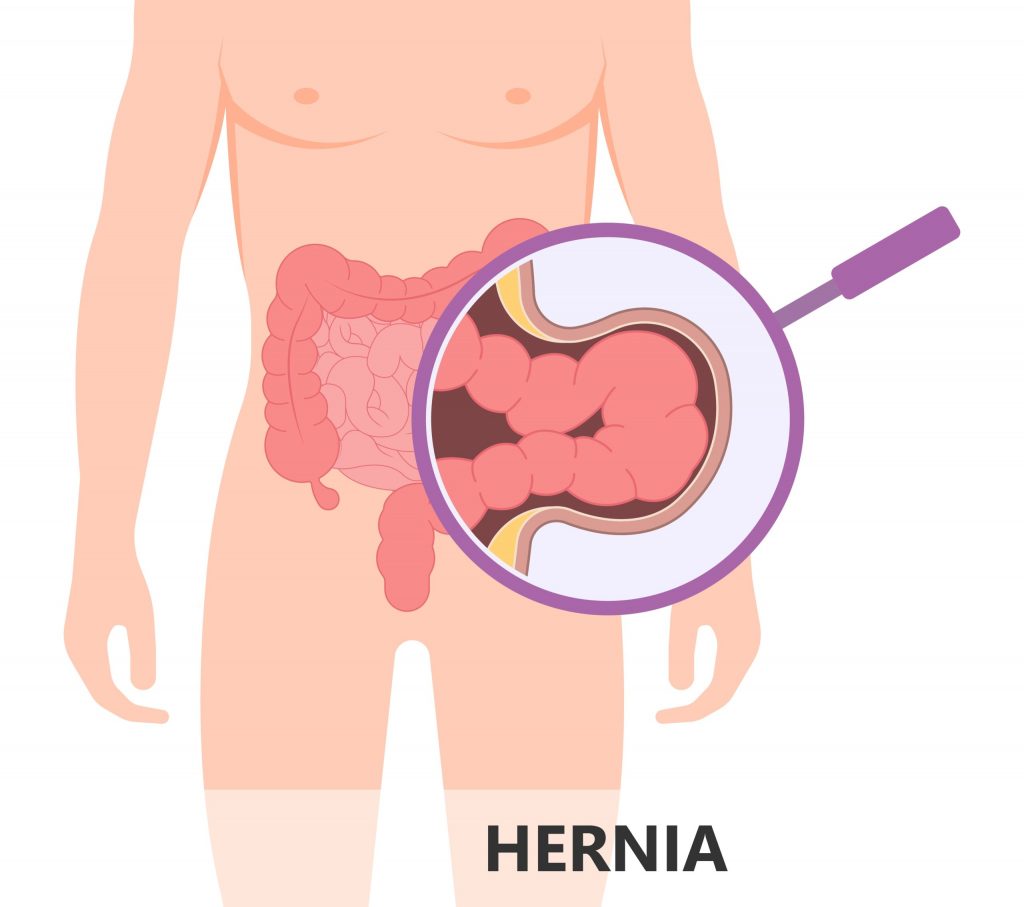Is Groin Hernia Serious – Diagnosis, Treatment, and Prevention in Singapore
Find out all you need to know about groin hernia...
Disclaimer: The information in this article is intended to provide educational guidance as there may be other treatment options available; it does not replace the need for professional medical advice and should not be relied upon as specific advice for individual cases.

Have you ever heard of an incisional hernia? This happens when a part of the intestine or fatty tissue bulges through an incision or an area of weakness in the abdominal muscles. When this happens, you may experience mild to severe pain, noticeable bulges when standing or coughing, and discomfort when moving or lifting heavy objects. In this article, we will explore the causes, symptoms, and treatment options of incisional hernias.
The main cause of an incisional hernia is the weakening of the surgical incision area. This can happen due to multiple surgeries, surgical infections, obesity, or an inactive lifestyle. The abdominal muscles are meant to hold and support the internal organs. However, if these muscles are weakened or separated, the internal organs may protrude from the abdominals and cause an incisional hernia to form. The severity of the incisional hernia depends on the size of the protruding organ or fatty tissue and the intensity of any symptoms.
You may notice the bulge when coughing, sneezing, or straining. In mild cases, you may not experience any symptoms until the protrusion increases. Symptoms may also depend on whether the hernia is reducible or irreducible. A reducible hernia may be pushed back into the abdominal wall while an irreducible hernia causes obstruction and requires immediate medical attention.
The treatment of an incisional hernia depends on the severity of the protrusion, symptoms, and personal preference. In some cases, your doctor may suggest monitoring the hernia and ensuring that it does not grow or cause any harm. Other medical interventions may include wearing a support garment, limiting physical activities, and taking over-the-counter pain medication. Surgical intervention is also an option. In this case, the surgeon would close the incisional hernia using mesh or sutures to reinforce the abdominal wall and prevent the hernia from returning.
In the case of an incisional hernia, this may involve taking precautions to ensure that the abdominal wall is not weakened. It can be achieved by maintaining a healthy lifestyle. Exercises that strengthen the abdominal muscles, such as sit-ups and crunches, are advised. Additionally, you should avoid lifting heavy objects or straining your abdomen in any way and follow all surgical instructions given to you by your doctor. Maintaining a healthy weight is also important to help reduce the risk of incisional hernia. Taking good care of yourself before and after surgery is essential in maintaining a healthy abdominal wall.
An incisional hernia can be uncomfortable and in some cases, life-threatening. However, knowing its causes, symptoms, and treatment options can help you take the necessary steps to prevent, diagnose, and treat it promptly. If you experience any symptoms of an incisional hernia, it is crucial to seek medical attention immediately. Remember, a healthy lifestyle, surgical precautions, and prompt medical attention can help in preventing incisional hernia.
Call us to book an appointment and we can help you manage your incisional hernia. Let Dr Kan Yuk Man work together to find the best plan of action for you!
Find out all you need to know about groin hernia...
Discover when hernia is considered dangerous, the various hernia types...
Discover when hernia is considered dangerous, the various hernia types...
Here at KYM Surgery, we believe in providing holistic & comprehensive medical care for all patients.
Here at KYM Surgery, we believe in providing holistic & comprehensive medical care for all patients.
Lower your chances of complications, see your doctor early and discuss your best treatment options.

We understand that hernias are worrying, but they can often be treated early. Here at KYM Surgery, we believe in providing holistic & comprehensive hernia care for all patients.
Hernia Surgery Clinic by KYM Surgery
Copyright © 2024 All rights reserved.